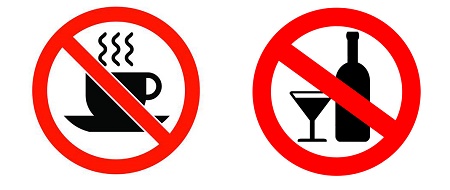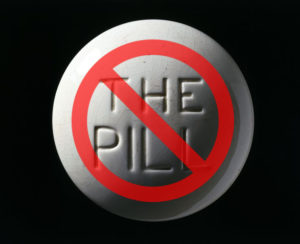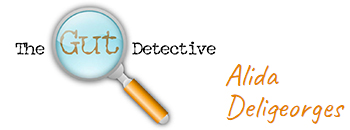10 Ways To Balance Hormones … Naturally
Conventional medicine uses what we might call the replacement model of endocrinology. This is where you measure hormones, see what’s low, and then replace them with that given hormone.
The functional model of endocrinology is fundamentally different than the replacement model, in that we look at the underlying mechanisms that are causing the hormone imbalance in the first place.
We go to the source of the problem and address it at that level instead of just dealing with the symptom, which is the hormone imbalance.
So, let’s discuss some natural approaches:
1. Eat Healthy Fats
Your body needs various types of fats to create hormones, including saturated fat and cholesterol. Eating a variety of foods high in short, medium and long-chain fatty acids is the key to keeping your hormones in check. These essential fats also keep inflammation levels low, boost your metabolism and promote weight loss.
Examples of healthy fats include coconut oil, avocados, grass-fed butter and wild-caught salmon.
2. Herbs And Nutritional Supplements
A unique class of healing plants, named adaptogenic herbs, help to promote hormone balance and protect the body from a wide variety of diseases, including those caused by excess stress.
Some examples include withania (ashwagandha), medicinal mushrooms, rhodiola and holy basil.

Other beneficial herbs include St John’s Wort (nervous support tonic), St Mary’s Thistle (liver support), Vitex (hormone modulating), along with Turmeric, Ginger and Cramp Bark (anti-inflammatory and muscle relaxants).
Several nutritional supplements are important for maintaining hormonal balance long term. These include magnesium, zinc, vitamin B complex, vitamin C, and evening primrose oil.
3. Balance Your Intake Of Omega-3 & Omega-6 Fats
Drastically elevated omega-6 levels in our Western modern diet has led to an onslaught of chronic diseases.
It’s vital to aim for a ratio of 1:1 of omega-3:omega-6 fats, which promotes an anti-inflammatory way of eating.
This can be achieved by steering clear from oils high in omega-6 fats (such as safflower, sunflower, corn, cottonseed, canola, soybean and peanut), and load up on rich sources of natural omega-3 fats instead (such as wild fish, flaxseed, chia seeds, walnuts, and grass-fed animal products).
Not all omega-6 fats are bad for you. There is one type of omega-6 fat that can be added to your diet called GLA (gamma-linoleic acid), which can be taken in a supplement form using evening primrose oil or eaten in the form of hemp seeds. GLA has been shown to support healthy progesterone levels.
4. Improve Gut Health & Heal Leaky Gut Syndrome
Gut problems have been responsible in triggering autoimmune disorders, including arthritis and thyroid disease.
Leaky gut allows undigested food particles, like gluten, to leak through your gut into your bloodstream, causing disease-causing inflammation. It is a condition that not only affects your digestive tract, but also causes hormone issues.

Steer clear of the foods that can cause digestive system damage, such as processed foods, grains, hydrogenated oils and added sugar. Add in foods and supplements that support healing leaky gut, such as probiotics, digestive enzymes, bone broth, kefir, fermented vegetables, and high fibre foods like vegetables and sprouted seeds.
Repairing your gut lining will in turn balance your hormones.
Read my “Gut & Disease” article more information on leaky gut and my “Autoimmune Disorders” article for more information on autoimmune issues.
5. Eliminate Toxins
Many man-made toxins are oestrogen imposters (xenoestrogens) that mimic the effects of the real hormone, but overstimulate cellular activity to an uncontrollable extent. The xenoestrogens wreak havoc on internal balancing mechanisms of the body, raising the oestrogen burden and with it, potential risks for disease.
Xenoestrogens are found in animal feed, in household cleaners, in personal care products and cosmetics, in plastics (e.g. BPAs), acetones (e.g. fingernail polish/removers), medications (e.g. contraception, HRT, analgesics), and in pesticides, fungicides, herbicides and industrial pollutants.
Xenoestrogens tend to accumulate in body fat such as breast tissue, and play a dangerous role in the initiation and progression of breast cancer.
To cut down your exposure to these toxins be sure to:
- Choose hormone-free, meat, dairy and wild caught fish vs. farmed varieties
- Avoid produce that has been sprayed with pesticides
- Use glass and stainless steel rather than plastic containers ad aluminium for food. Be sure not to heat or microwave food in plastic bags or containers
- Avoid herbicides and insecticides
- Avoid bleached paper such as coffee filters, tissue paper, napkins, etc.
- Avoid the use of household chlorine containing bleach or use disposable gloves and open all the windows if working with chemicals
- Switch to organic sanitary napkins and tampons
- Reduce use of solvents like nail polish, nail polish remover, etc.
- Switch from teflon pans to stainless steel, ceramic or cast iron
- Drink plenty of purified water to flush toxins out of the body
6. Exercise
Exercise is great for balancing hormones because it reduces inflammation, can help to maintain a healthy weight, lowers stress, helps regulate your appetite, and aids in getting better sleep. It can also enhance your immune system, allow your cells to take up more glucose (which lowers insulin), protect you from depression, and provide you with much needed natural energy.
However, it is important to aim for just the right amount of exercise. Over-training can certainly interfere with hormone balance. It’s best to aim for morning exercise with moments of relaxation throughout the day and evening.

One of the best activities that you can do is high intensity interval training, including burst training. This can assist with a sluggish metabolism, weight gain and other issues. Basically, burst training involves training for 20 minutes three times a week, with about 5 intervals of high intensity bursts within that training session.
Read my “Weight Issues” article for more information on burst training.
7. Reduce Stress & Get More Sleep
A lack of sleep or disturbing your natural circadian rhythm can be one of the worst habits contributing to hormone imbalance.
A lack of sleep, long-term use of corticosteroids and chronic stress are three of the biggest contributors to high cortisol levels.
Excessive stress and poor sleep are linked with higher levels of morning cortisol, decreased immunity, trouble with work performance, and a higher susceptibility to anxiety, weight gain and depression.
Sleep helps keep stress hormones balanced, builds energy and allows the body to recover properly.
To maximize hormone function, ideally try to get to bed by 10pm and stick with a 90 minute sleep cycle as much as possible.
Read my “Weight Issues” article for more information on sleep patterns and read my “Stress & Fatigue” article for more information on stress management.
8. Limit Caffeine & Alcohol Intake
Caffeine has been shown to increase insulin levels, reduce insulin sensitivity, and increase stress hormones, such as cortisol and adrenaline. It is addictive in nature, increases nervousness and anxiety, and is linked to insomnia.
If you feel you need a little boost during the day, try not to drink more than 1-2 cups and since caffeine has a long half-life (about 6 hours), aim to have these no later than midday.

Chronic alcohol consumption (above 2-3 drinks daily) can contribute to oestrogen dominance, impact pancreas functioning, lower testosterone, and contribute to anxiety and malnutrition. It can have a major effect on liver function also, which is very important for hormonal balance.
9. Supplement With Vitamin D3
Vitamin D (actually a hormone) is an essential nutrient that plays a role in the production or biological activity of select hormones, and might therefore play a role in some types of hormone imbalances.
Vitamin D also has important implications for regulating the immune system (and keeping inflammation low), insulin secretion, heart function and blood pressure, and brain and foetal development.
10. Avoid Birth Control Pills & HRT
The birth control pill acts like an antibiotic in the gut, destroying the microbiome balance. If your doctor prescribes the birth control pill for PCOS particularly, you may find it will worsen the problems of weight gain and insulin sensitivity, because of the impact on gut flora.
Also, many women who have been on birth control pills for a very long time, not necessarily for contraception, but to regulate their cycle, tend to have lots of side effects and symptoms related to that

The birth control pill is a type of hormone therapy that raises oestrogen levels to such dangerous levels that it can cause many complications, just like HRT (hormone replacement therapy) for menopausal symptoms.
Many women also struggle to get off the birth control pill and it can take many months, even years, to fully unwind all of the pathology and symptoms that were caused by being on the pill for that long.
There are many other safer ways to prevent pregnancy and to cope with menopausal symptoms. Speak to your healthcare practitioner for alternative methods.
Listen To Your Body
In some cases, synthetic hormonal treatments (such as insulin) will be necessary to treat a hormonal imbalance. However, the majority of people can feel a lot better by making the lifestyle changes described above.
For people with diagnosed hormonal disorders, it’s always important to speak with your doctor before discontinuing any medication use.
Always keep track of how you’re feeling, and continue to research and evaluate how you respond to different treatments.
CLICK HERE for consultations with me….
